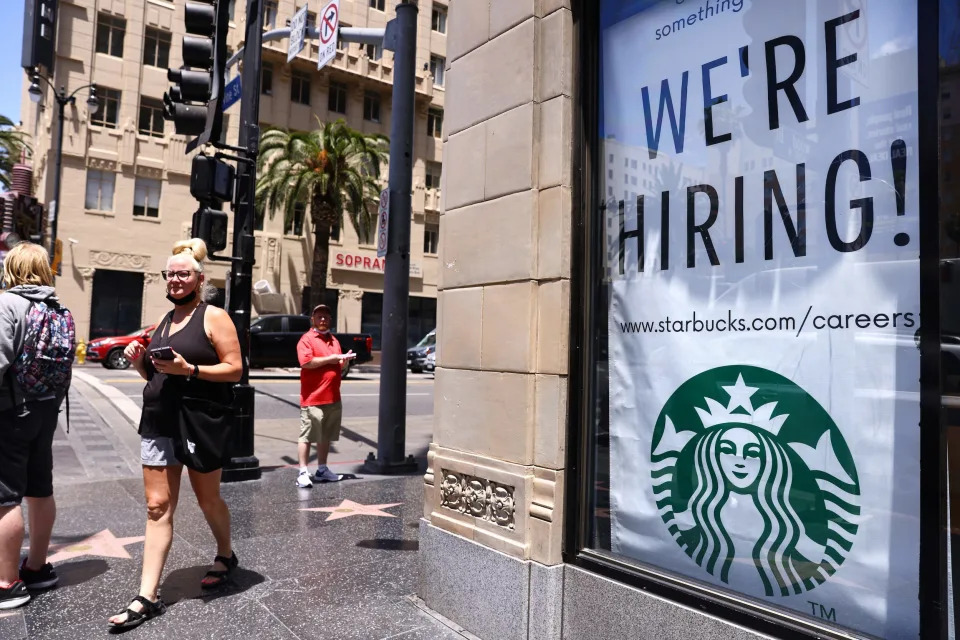News
The stock market's biggest risk this week is a hot August jobs report, BofA says

The biggest risk for the stock market this week is a hotter-than-expected August jobs report, according to Bank of America.
The bank highlighted the risk in a note on Monday, arguing that a too-hot employment reading would reprice the number of expected interest rate cuts this year.
"Equities seem more excited about the cuts than concerned about a potential recession, gauging by their return to near highs and the outperformance of small caps and equal-weighted S&P," Bank of America strategist Ohsung Kwon said.
He added: "If that's true, the main risk for equities this week is a hot NFP that reprices short-term rates higher."
The August non-farm payrolls report is set to be released Friday morning. Economists expect 162,000 jobs to be added to the economy last month, which, if accurate, would lower the unemployment rate to 4.2% from 4.3%.
Economists at Bank of America expect just two 25 basis point interest rate cuts this year, while the market is pricing in "recession-sized" rate cuts of 100-basis points, according to the CME FedWatch Tool.
If the US economy sees a strong rebound from the weak July jobs report, it could drive a sentiment change in the market and prove that investors are overly confident in the Fed's rate cut path.
According to the note, this would likely put downward pressure on the stock market, as Kwon recommended investors hedge the downside risk with October put spreads on the S&P 500.
Recent signs of a resilient economy include second-quarter GDP growth being revised higher to 3.0% from 2.8%, as well as solid personal spending data, which jumped 0.5% month-over-month in July.
"The economy continues to disprove skeptics. Growth has certainly cooled relative to last year, but it has done so at a gradual pace," Kwon said.
One Wall Street strategist who expects a hot jobs report on Friday is Ed Yardeni of Yardeni Research.
In a note to clients on Monday, Yardeni said he expects 200,000 to 225,000 jobs were added to the economy last month.
If accurate, this would blow away economist estimates and align with the strong jobs reports seen in May and June, playing into the idea that the Fed doesn't need to cut interest rates all that much.
"It is very unlikely that the Fed will have to lower the federal funds rate as rapidly and by as much as was necessary during previous monetary easing cycles when financial crises triggered credit crunches and recessions," Yardeni said.
While Yardeni's optimistic outlook would be great news for the economy, it could prove to be a headwind for stock prices in the short term.
Read the original article on Business Insider

